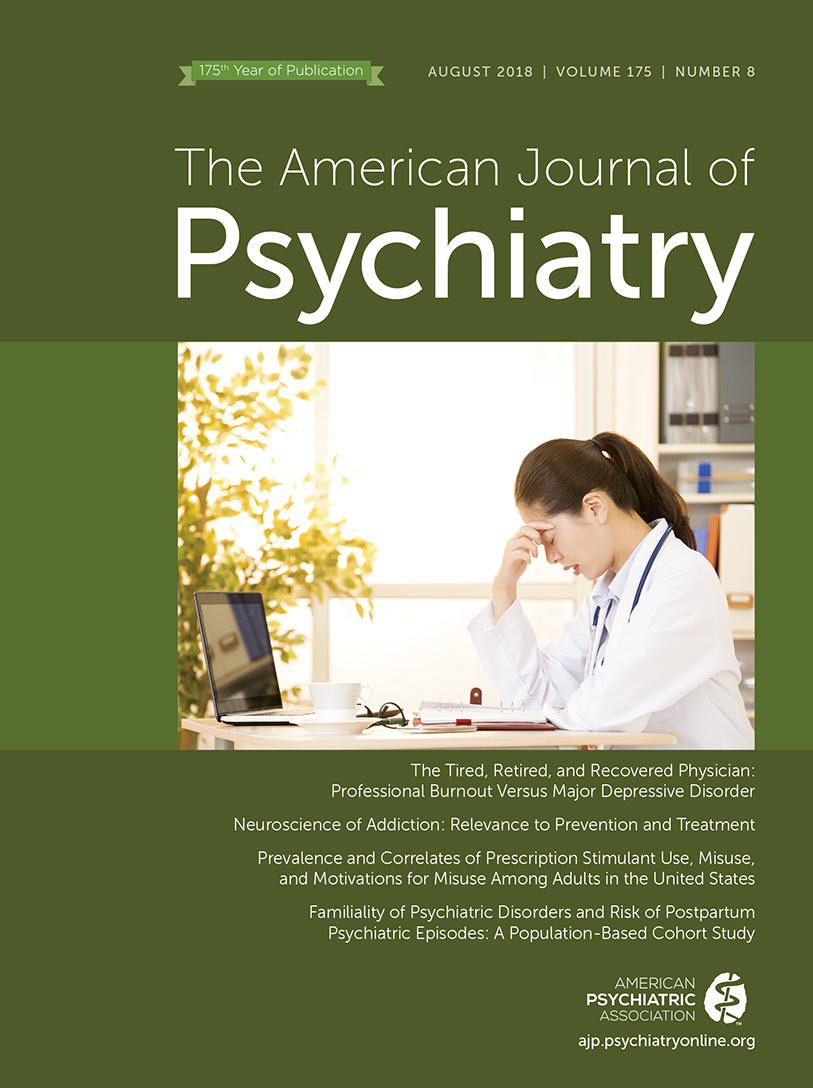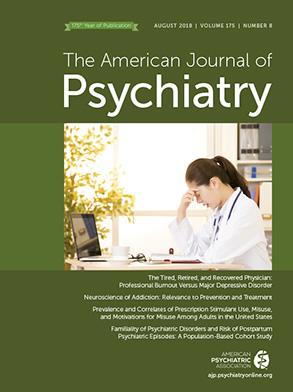In this issue, Han and colleagues (
1) report that depression and childhood trauma were associated with faster aging in a sample of 1,130 individuals from the Netherlands Study of Depression and Anxiety (NESDA). What do these findings mean, and what do they tell us about major depressive disorder and its risk factors?
Han et al. exploit a known property of our epigenome, namely, that many differentially methylated regions of our DNA tend to change as we age. These age-sensitive differentially methylated regions can also be used to estimate chronological age, using DNA extracted from various tissues, including blood and brain. While your chronological age advances at a fixed rate, your estimated “DNA methylation age” may advance faster or slower than your age, and many now refer to this aging estimator as the “epigenetic clock” (
2). A faster clock relative to your chronological age implies acceleration of biological aging, and this has also been shown to predict age-related diseases and mortality (
3). The overwhelming majority of published examples of the “epigenetic clock” are based on data generated using the Illumina BeadChip platform. However, Han et al. have developed a clock using a similar statistical method but data generated from MBD-seq (methyl-CpG-binding domain sequencing).
Han et al. estimated the effect of age on DNA methylation in multiple “held out” subsets of the NESDA sample, and then used 10-fold cross-validation to estimate age in the remaining sample. This process was repeated for all individuals, and estimated “epigenetic age” was then compared between currently depressed and never-depressed groups.
Individuals with major depression had a higher epigenetic age than the never-depressed group after correction for multiple potential confounders, although the differences were relatively small (d=0.18). These findings replicated in a postmortem brain collection, and the signals generated from both data sets indicated a convergence on neuronal processes. Higher epigenetic age was also associated with reports of childhood trauma, a key risk factor for depression in multiple studies.
Han and colleagues’ findings suggest that individuals with major depression and people with a history of childhood trauma may age biologically relatively faster than people without major depression or childhood trauma. These findings are potentially important, as individuals with major depression or childhood trauma die earlier on average and have more age-related diseases (
4). Epigenetic age may represent a biomarker of aging and therefore may be a potential means of stratification to identify patients who may benefit from early interventions seeking to reduce the physical comorbidities of major depression. Epigenetic age is, however, more strongly associated with smoking history than with major depression (
5), and it is not clear whether adjustment for cotinine levels dealt adequately with residual confounding by both current and past smoking history.
The Han et al. study also raises several questions about the direction of association and whether depression is causally related to epigenetic age acceleration. There are other possible explanations for the observed correlation between these variables, including the possibility that a shared third risk factor or confounder accounts for the observed association. While it seems plausible that major depression “causes” epigenetic age acceleration relative to chronological age, the reverse association cannot be ruled out. Various statistical approaches, such as Mendelian randomization or the use of longitudinal data, can in theory be helpful in ascribing directionality to a causal relationship. Such methods should be tractable as genome-wide association studies of major depression and epigenetic age become available (
6) and more investigators add DNA methylation measures to existing cohorts. It might also be a mistake to assume that greater epigenetic age acceleration in major depression is a reflection of aging, rather than maturation, in the absence of data spanning the life course.
Nevertheless, the findings presented here add major depression and childhood trauma to the growing list of disorders associated with accelerated biological aging, as defined by the epigenome. These findings provide new routes to discovering their shared mechanisms and reducing multimorbidity and shortened lifespan.

